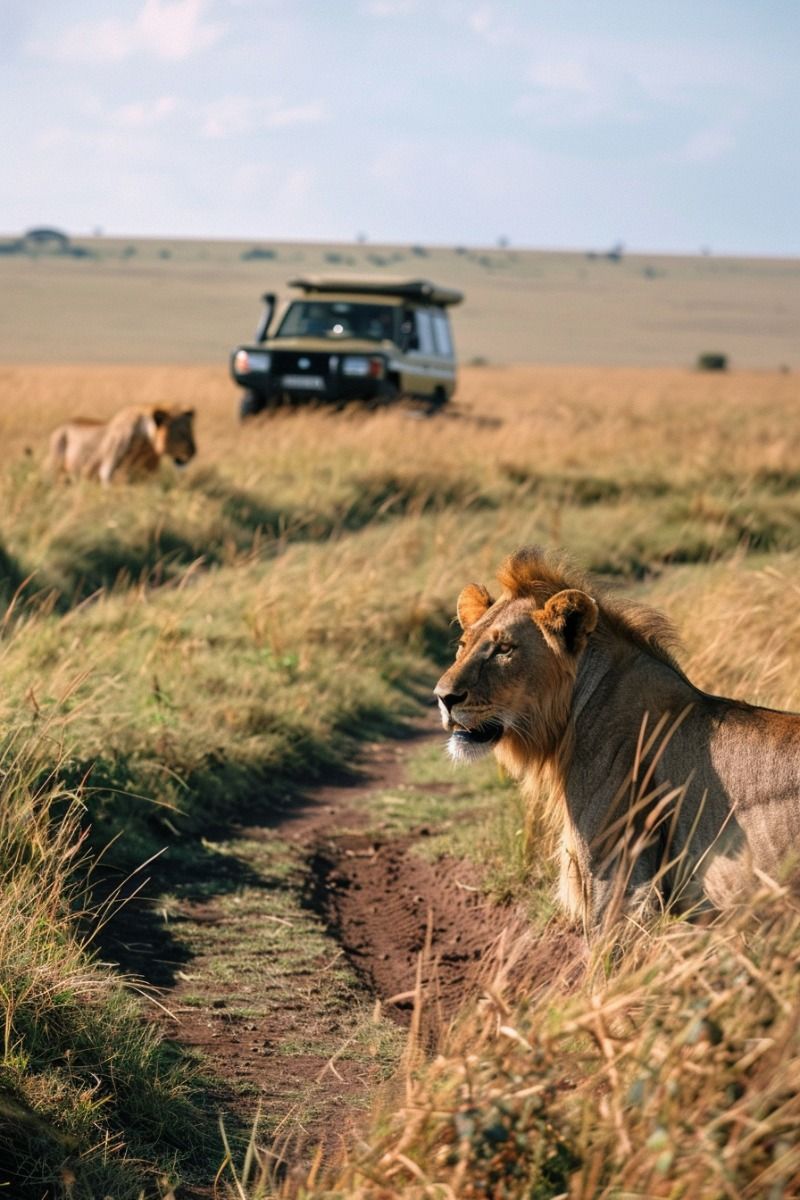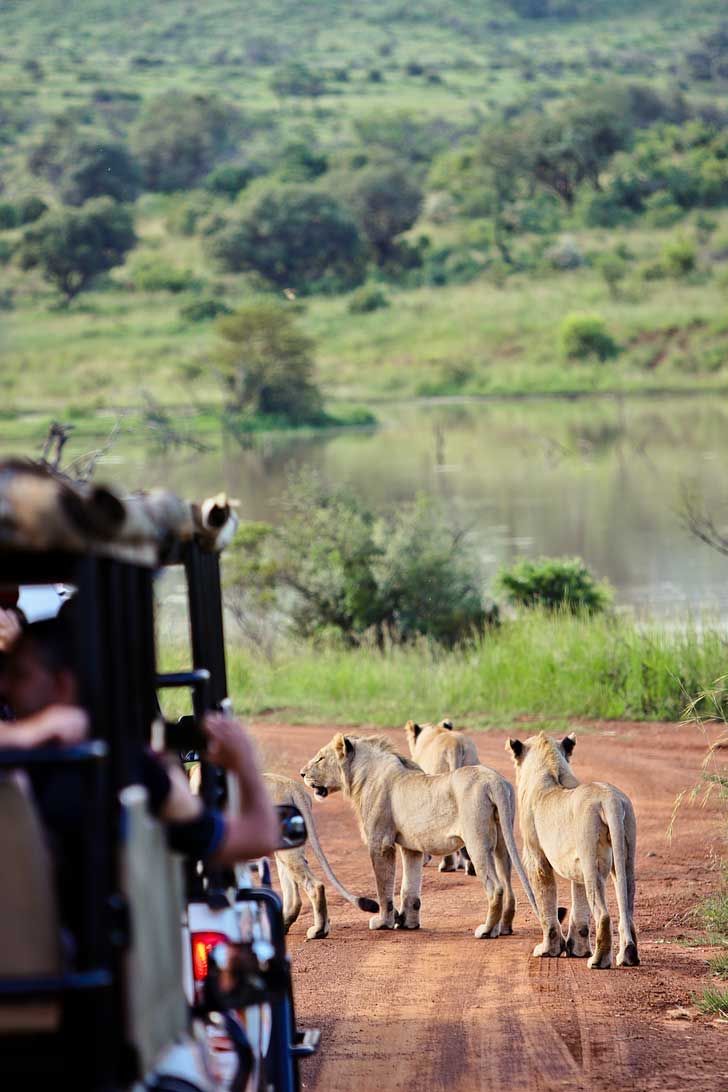Can You Choose Your Group Safari Companions? The Ultimate Guide to Customizing Your Safari Experience
When planning an African safari, one of the most common concerns travelers express is about their potential safari companions. The thought of being stuck with incompatible strangers for days or even weeks in the wilderness can be daunting. This comprehensive guide will explore all aspects of group safari dynamics, providing you with the knowledge and strategies to either choose your ideal travel companions or maximize your experience when traveling with assigned groups.
The question “Can I choose my group safari companions?” doesn’t have a simple yes or no answer. The reality exists on a spectrum, with options ranging from completely random assignments to fully curated private groups. Understanding this spectrum is crucial for setting realistic expectations and making informed booking decisions.

We’ll examine:
-
The different types of group safari structures
-
How tour operators assign and manage groups
-
Strategies for influencing your group composition
-
The psychology of group travel dynamics
-
Real-world experiences from safari veterans
-
Data-driven insights into group satisfaction
-
Emerging trends in safari group customization
By the end of this guide, you’ll be equipped with actionable strategies to create your ideal social safari experience, whether that means carefully selecting every companion or learning to thrive in a group of strangers.
Understanding Group Safari Structures
Open Group Tours (Random Companions)
The most common and affordable option, open group tours fill vehicles on a first-come, first-served basis. These tours typically:
-
Have no screening process for participants
-
Attract a wide range of ages and backgrounds
-
Offer limited flexibility in itinerary
-
Are priced 30-50% lower than private options
Major operators using this model include G Adventures, Intrepid Travel, and Acacia Africa. While cost-effective, these tours provide no control over who you’ll be sharing your safari experience with.
Small-Group Fixed Departures (Semi-Curated)
A middle ground between open and private tours, these safaris:
-
Limit group size (typically 6-8 people)
-
May screen for basic compatibility factors
-
Offer slightly more itinerary flexibility
-
Cost 20-30% more than open group tours
Operators like &Beyond and Wilderness Safaris use this model, attempting to create cohesive groups while maintaining some economies of scale.
Private Group Tours (Fully Customizable)
The premium option where you:
-
Book the entire vehicle/exclusive use
-
Choose all your companions
-
Customize every aspect of the itinerary
-
Pay 2-4 times the per-person cost of open tours
High-end operators like Singita and Rothschild Safaris specialize in these experiences, offering complete control over your social environment.
The Psychology of Safari Group Dynamics
Understanding group dynamics is crucial because the social experience can make or break your safari. Research in travel psychology shows:
-
Shared experiences in novel environments accelerate bonding
-
Small groups (6-8 people) optimize cohesion without cliques
-
Common interests create stronger connections than demographics
-
Structured activities reduce social friction
On safari specifically:
-
Morning game drives create natural icebreakers
-
Shared wildlife sightings build camaraderie
-
Downtime at lodges allows for deeper connections
-
Stressful situations (like close animal encounters) can strengthen bonds
Strategies for Choosing Your Companions

Private Group Bookings
For those who can afford it, booking a private group offers complete control. Key considerations:
-
Ideal group size is 4-6 for vehicle comfort
-
Mix of personalities prevents monotony
-
Shared expectations about pace and activities
-
Clear communication about costs and responsibilities
Matchmaking Services
Emerging safari matchmaking services use:
-
Personality assessments
-
Interest profiling
-
Travel style compatibility metrics
-
Pre-trip video introductions
Companies like Yellow Zebra Safaris and The Explorer Society specialize in creating harmonious groups through careful matching.
Niche Interest Groups
Specialized safaris attract like-minded travelers through:
-
Photography-focused itineraries
-
Birdwatching specialties
-
Conservation-oriented programs
-
Cultural immersion experiences
These shared interests create instant common ground among participants.
Creating Your Own Group
Recruiting your own travel companions through:
-
Social media travel communities
-
Alumni networks
-
Special interest clubs
-
Workplace connections
Allows you to vet companions while still benefiting from group rates.
Managing Group Dynamics on Safari
Even with careful planning, group dynamics require management. Effective strategies include:
Pre-Trip Preparation
-
Share expectations and boundaries
-
Discuss must-see wildlife priorities
-
Agree on communication protocols
-
Establish a rough daily rhythm
During the Safari
-
Designate a “group ambassador” for feedback
-
Schedule regular check-ins
-
Build in alone time
-
Rotate seating arrangements
Conflict Resolution
-
Address issues early
-
Focus on behaviors, not personalities
-
Utilize your guide as mediator
-
Don’t force connections
The Economics of Group Safaris
Understanding the financial implications helps make informed choices:
| Group Type | Cost Per Person | Social Control | Typical Group Size |
|---|---|---|---|
| Open Group | $200-$400/day | None | 8-12 |
| Small Group | $400-$600/day | Moderate | 6-8 |
| Private Group | $800-$1200/day | Complete | 4-6 |
Key cost drivers:
-
Vehicle exclusivity
-
Guide attention
-
Lodging configurations
-
Administrative overhead
Case Studies: Real Group Safari Experiences
The Harmonious Group
A photography-focused safari in Kenya’s Masai Mara brought together six enthusiasts who:
-
Shared technical knowledge
-
Respected each other’s shooting space
-
Organized image review sessions
-
Remain in contact years later
The Mismatched Group
A budget Tanzania safari combined:
-
A retired couple wanting leisurely drives
-
Young backpackers seeking adventure
-
A solo traveler focused on birdwatching
Result: Constant tension over pace and priorities
The Transformed Group
Initially strangers on a Botswana safari, eight travelers:
-
Bonded over a rare wild dog sighting
-
Created inside jokes around camp
-
Planned reunions before departing
-
Demonstrated how shared experiences can overcome differences
The Future of Safari Group Customization
Emerging trends are changing how travelers experience group safaris:
Technology-Enabled Matching
-
AI-powered compatibility algorithms
-
Virtual reality preview experiences
-
App-based group communication platforms
Flexible Group Models
-
Modular pricing for semi-private experiences
-
Dynamic grouping based on daily interests
-
Hybrid private/shared vehicle options
Specialized Group Experiences
-
Generational focus (e.g., millennial-only)
-
Professional affinity groups
-
Thematic safaris (conservation, art, etc.)
Making Your Decision: A Step-by-Step Guide
Step 1: Assess Your Priorities
-
Social experience vs. wildlife focus
-
Budget constraints
-
Flexibility needs
-
Risk tolerance for unknown companions
Step 2: Research Operators
-
Review group policies
-
Understand matching processes
-
Check maximum group sizes
-
Look for specialty options
Step 3: Consider Timing
-
Peak season attracts diverse groups
-
Shoulder seasons may have more curated groups
-
Special departures attract niche travelers
Step 4: Prepare for Any Scenario
-
Pack social “icebreakers”
-
Bring independent entertainment
-
Have strategies for alone time
-
Maintain flexible expectations
Conclusion: Creating Your Ideal Safari Social Experience
While complete control over safari companions comes at a premium price, today’s travelers have more options than ever to influence their group experience. Whether through private bookings, careful operator selection, or strategic trip timing, you can significantly increase your chances of a harmonious safari group.
Remember that some of the most memorable safari experiences come from unexpected connections with fellow travelers. The shared wonder of witnessing Africa’s wildlife has a remarkable power to bring people together across cultures, ages, and backgrounds.
By applying the insights from this guide, you’ll be equipped to make informed decisions about your safari social experience, ensuring that your companions enhance rather than detract from this journey of a lifetime. Book Now!









